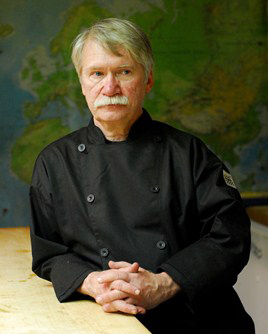Think Tank: Your Program Brand Is Important
13 February 2015
 Everyone benefits from a well-branded program—from faculty and staff who take pride in their institution to employers who are able to hire well-prepared graduates to donors who line up to be on a winning team.
Everyone benefits from a well-branded program—from faculty and staff who take pride in their institution to employers who are able to hire well-prepared graduates to donors who line up to be on a winning team.
By Paul Sorgule, MS, AAC
Jeff Bezos, CEO of amazon.com, once said: “Your brand is what other people say about you when you are not in the room.”
What is most important about this statement is that brand, when built and executed properly, is bigger than your college’s marketing campaign, more significant than what is printed in your collateral pieces or what appears on your website. Brand is what people believe you to be. Belief involves trust and loyalty, two components of success that carry any business, in this case a college culinary program, to a level of success that is measured in decades of exceeding expectations.
Deans and directors know, I am sure, that a significant portion of their time and effort must be spent building, sometimes maintaining, but oftentimes growing the brand of the school they represent. Bezos went on to state: “A brand for a company [school] is like a reputation for a person. You earn this reputation by trying to do hard things well.” This defines the necessity to constantly stay on top of what built your program’s brand recognition. Branding your school is not a destination to reach; it is a constant process of striving to get and stay there.
So, what does brand mean for a culinary program? Who benefits from the process of brand building, and how do you start?
Brands begin with the establishment of values, the definition of a philosophy that portrays who you are or who you want to be. Howard Shultz, CEO of Starbucks said, “If people believe that they share values with a company, they will stay loyal to the brand.”
Ultimately, what any business (culinary program) wants is to build loyalty and trust. Definition of your over-riding values and beliefs will unify internal and external customers. Your internal customers (faculty, staff, administrators) are attracted to, and passionate about, colleges that share the same or similar beliefs. Your external customers (students, parents, alumni, employers, vendors, accreditation agencies and donors) are attracted to your college for the very same reasons. It will be those institutions with a consistent approach toward values and beliefs and a commitment to trustful execution of their educational promise that survive and thrive in today’s highly competitive marketplace.
The benefactors of a well-executed brand are faculty and staff who can take pride in their institution, the students whose expectations are met or exceeded, employers who are able to hire well-prepared graduates, accrediting agencies able to refer to your school as a benchmark of excellence, alumni who continue to feel pride in their alma mater and boast about how well they were prepared for their careers, and donors who line up to be on a winning team.
So, as you contemplate the enormity of the task of brand building, it will be important to establish a strategic approach toward the end goal. Define your values and beliefs, communicate them effectively internally and externally, design a system of performance that is always measured against those beliefs and values, invest in thorough hiring practices and in the training of your team, network with other companies and organizations with the same level of passion for brand excellence, and consistently strive to protect and grow the level of trust that others have for your institution.
I would encourage all deans and directors to attend CAFÉ’s third-annual Deans and Directors Retreat in Chicago this month (February 20-22) to network with other professionals dedicated to growing their program’s brand. Inquire today about any remaining available spaces at this year’s conference by contacting Mary Petersen at This email address is being protected from spambots. You need JavaScript enabled to view it., (410) 268-5542.
Paul Sorgule, MS, AAC, president of Harvest America Ventures, a “mobile restaurant incubator” based in Saranac Lake, N.Y., is the former vice president of New England Culinary Institute and a former dean at Paul Smith’s College. Contact him at This email address is being protected from spambots. You need JavaScript enabled to view it., www.harvestamericaventures.com.
